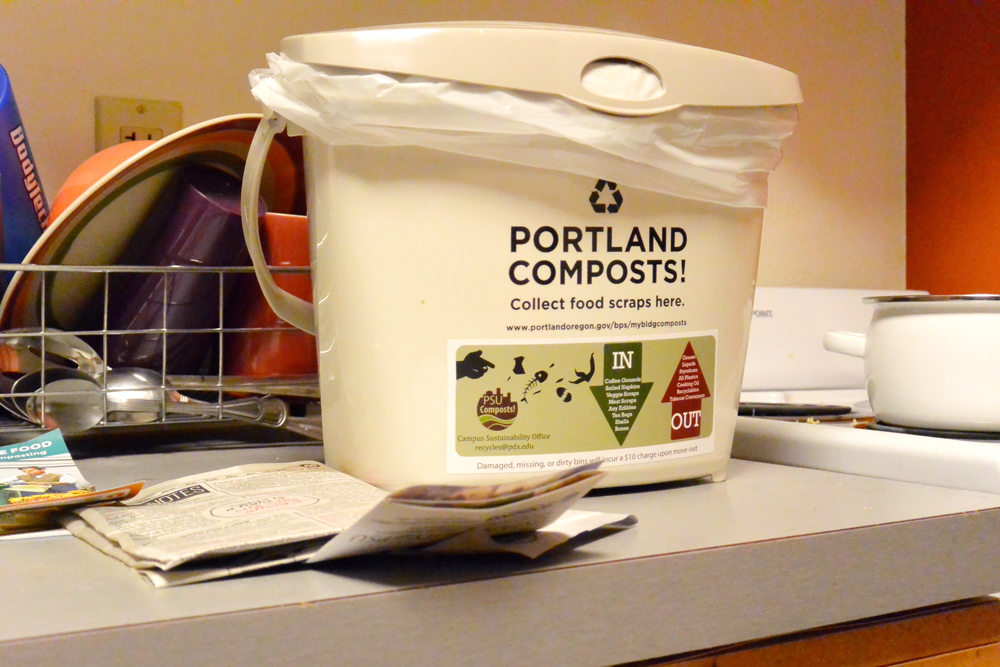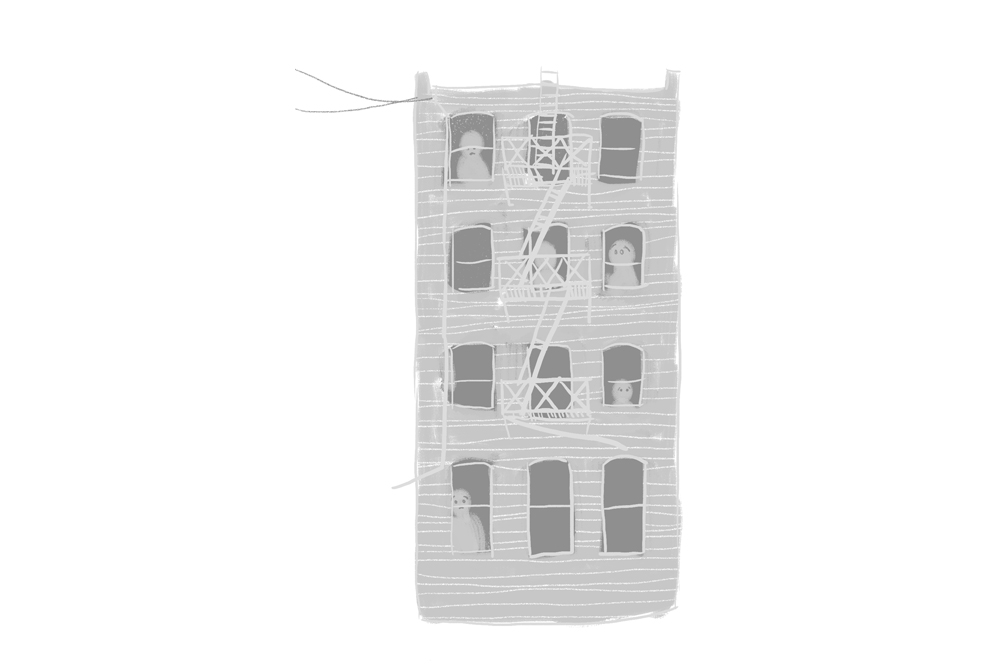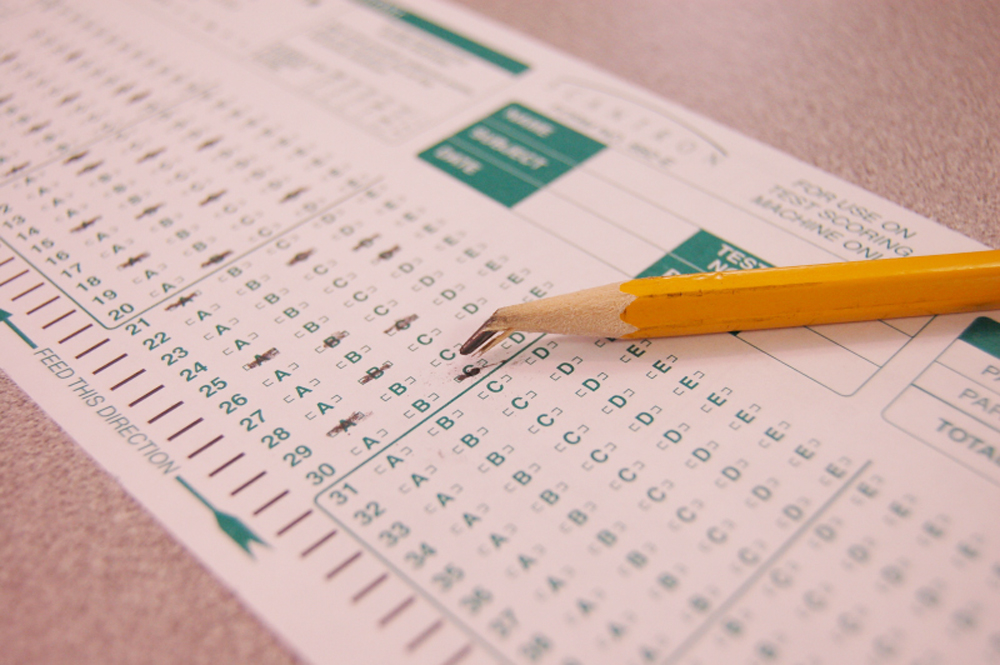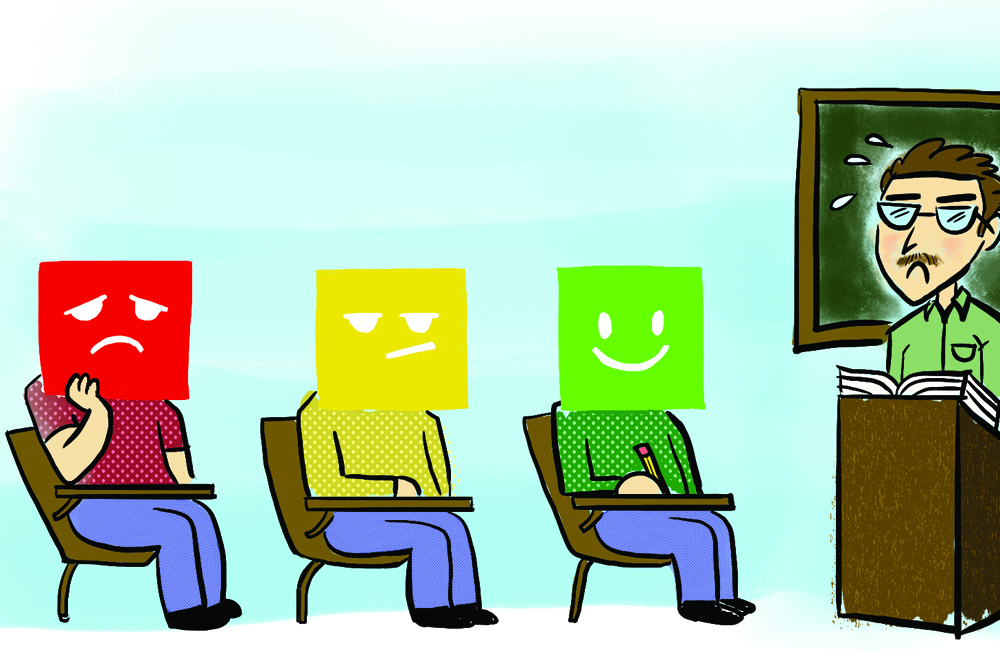It’s hard not to think about sustainability when you think about Portland State. We have eight LEED certified buildings on campus, including Stephen E. Epler Hall, the Science Research & Teaching Center, Lincoln Hall, the Academic & Student Rec Center, Shattuck Hall, Broadway Housing Building, the Engineering Building and the Research Greenhouse.
The Campus Planning and Sustainability website says that a green building “uses natural resources…uses energy-efficiency systems and materials” and “reduces, reuses, and recycles materials.” With PSU’s focus on being eco-friendly, it’s not a surprise that the university received a $25 million grant to research sustainability.
Something that seems to be getting pretty big at PSU is composting. Composting is essentially reusing food scraps and other organic items to create new soil which, in turn, creates new food. A few housing developments on campus provide their rooms with composting pails that students can use to collect food scraps and throw out in compost-specific bins on campus.
Although PSU is a relatively green university, it’s still important to ask what the benefits are for composting. We know composting creates soil, but what other benefits does it have? According to the Environmental Protection Agency’s webpage, composting both enriches soil and helps clean up contaminated soil. Compost, as the page says, “encourages the production of beneficial micro-organisms…which in turn break down organic matter” and the compost process also “degrades and…eliminates preservatives, pesticides, and…hydrocarbons.”
Composting, as you can imagine, also prevents pollution. One of the major greenhouse gases is methane, and composting organic matter from landfills can “[avoid] the production of methane.”
One of the main reasons I’m writing this article is to learn about composting. I learned about the compost pails in certain housing buildings from a fellow writer. After learning about the composting process and what it intends to do, it seems like a good model for universities to be following.
Portland is, without a doubt, a progressive city. It’s hard not to run into activists in Portland, especially on campus. One thing I recently became aware of is the fact that PSU has its very own EcoReps. EcoReps are students living on campus who promote sustainability. Yeah, I didn’t know about them either, don’t worry. It’s kind of interesting how these movements can sometimes go under the radar. Part of this, of course, can be blamed on people just not being interested. Another part, however, can be blamed on the fact that these movements aren’t being promoted or put out there enough.
Now, I’m going to go ahead and ignore those of you who don’t understand how science and data work, but as far as I am concerned, as well as many others, our world’s climate is in pretty bad shape. Finding ways to boost our environmental preservation is a pretty good idea. In other words, I think PSU’s strides toward making sustainability a very real opportunity are great. The university’s decision to allow students to take part in composting in their own rooms is a great way to get college students involved. It’s especially good in helping those who want to be involved find a starting place.
As I mentioned before, PSU’s passion for environmental awareness is something that other universities, institutions, or really anyone can benefit from. As time goes on, conditions for the earth we live on may worsen. I know a lot of people may say that it’s hopeless, but in cases like this, the attitude you have toward solving the problem can make all the difference.






